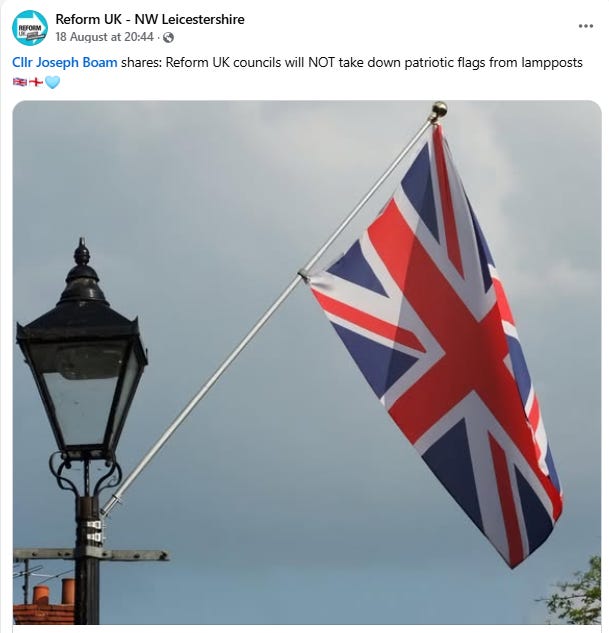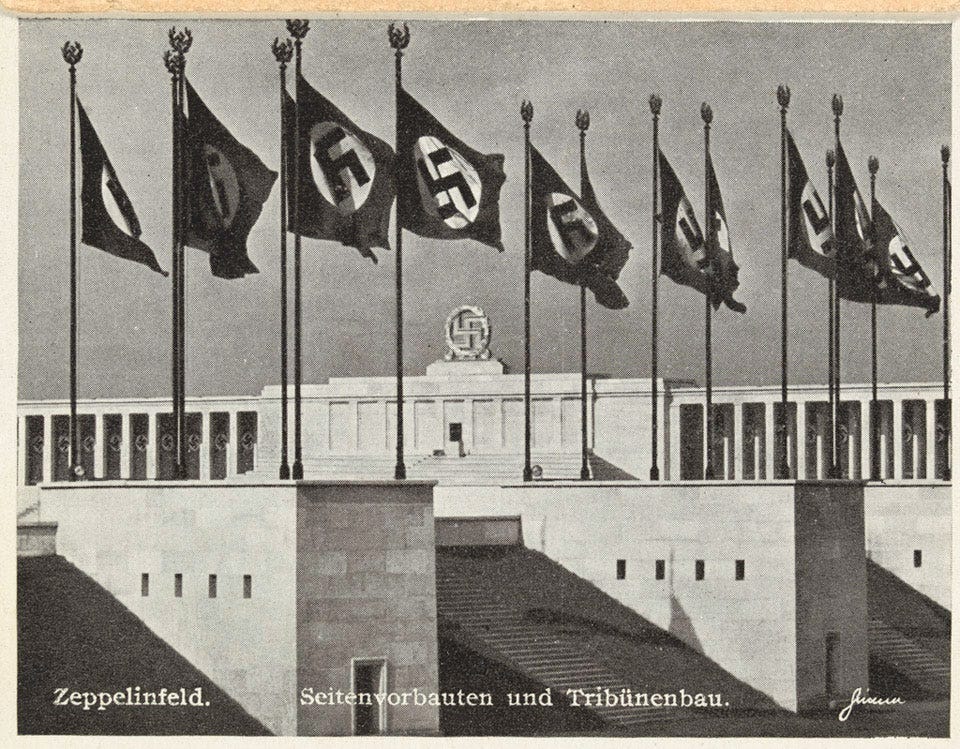This week social media has been awash with calls to ‘fly our flags’.
It’s not St George’s day, it’s not our annual commemoration to remembrance, it’s August - the traditional political silly season - and it appears to be an issue that has been jumped on because ‘we’ are in danger of England being stolen from us.
This round of protest appears to have stemmed from media reports of council workers being ordered to tear down St George’s flags, flying from lampposts whilst leaving semi-official Palestinian flags in place.
This round of protests, dubbed ‘Operation Raise the Colours’ has gathered support, resulted in the painting of the cross of St George on roundabouts, and has, of course, led to comment and support of politicians courting the populist vote.
But, my question is simpler.
Is it English?
Doesn’t all of this protest about the right to fly flags wherever and whenever misunderstand the concept of England and what Englishness is?
Is it the case that a political movement seemingly wedded to recapturing the past ‘glories’ of Empire fundamentally fails to get what it was that made our country so English?
It is a round of protests that has caused me to revisit Sir Roger Scruton’s tribute ‘England:An Elegy’, a thoughtful consideration of what England and being English means.
In his first chapter Sir Roger highlights the work of another author capturing the spirit of England with a list of tableaux, George Orwell:
“The clatter of clogs in the Lancashire mill towns, the too-and-fro of the lorries on the Great North Road, the queues outside the Labour Exchanges, the rattle of pintables in the Soho pubs, the old maids biking to Holy Communion through the mists of the autumn morning - all these are not only fragments, but characteristic fragments, of the English scene.”
Each fragment is of an England long since disappeared, and never to return, but can we honestly suggest it is an evocation of an England that would have demanded the right to fly flags whenver we choose?
Was Orwell writing of an England comfortable with mass flag flying, or would he have seen it as a form a patriotism more aligned to 1930’s Germany?
For Orwell, was the ritualised flying of flags ‘English’?
In his elegy of England (an elegy being ‘a poem of serious reflection, typically a lament for the dead’) Scruton too contemplates what Englishness means.
He reflects that nations are “imagined communities”. They may be defined by a physical border but “seldom if ever do they arise from a common stock or a web of kinship”.
He too, like Orwell, looks to define Englishness not as a flag but as characteristics almost undefinable but, being English, we know what they are when we see and feel them.
Sir Roger comments that we are a nation that for hundreds of years, unlike other nations, did not have laws imposed on us but a common law that we all understood to be just and inherent to our nature, and which judges were able to determine based on precedence. Can you imagine populists espousing an ‘Englishness’ being inextricably linked with what they would now term ‘activist judges’? Of course not.
Scruton writes that Englishness was a sense of belonging, a nation of ‘rituals, uniforms, precedents and offices’, a nation made up of WIs, cricket clubs, trade unions, chapels and public schools.
He writes “The game of cricket was the eloquent symbol of this experience of membership: originally a village institution, which recruited villagers to a common loyalty, it displayed the reticent and understated character of the English ideal: white flannels too clean and pure to suggest physical exertion, long moments of silence and stillness, stifled murmurs of emotion should anything out of the ordinary occur and the occasional burst of subdued applause.”
Taking those characteristics into account can there be anything less English than demanding the right to fly flags?
But isn’t that the most obvious reason why such a demand simply isn’t English?
Scruton writes “England, I was taught, preferred duties to rights, and quiet cooperation to the obstinate demands of idleness.”
England and Englishness is, or was, as much about the duties that we owe to our nation as the rights we demand of it.
And, potentially, that is why Scruton’s book is an elegy, it describes an England that is dead: “it is only at the end of things that we begin to understand them”.
How many of those demanding the right to fly flags understand the duties of what Englishness means?
How many give time to support clubs in their community? How many are volunteer school governors? How many s do the shopping for elderly neighbours up the road? How many are trade unionists?
My guess would be relatively few because whilst at least, in part, our ways of life have changed so too have our values.
How many scoffed at David Cameron’s ‘Big Society’, but it was undoubtedly, more English than a right to fly lags from a lamp post ever can be.
The demand to fly flags might be a right, but is it ‘English’?
I don’t think so.

